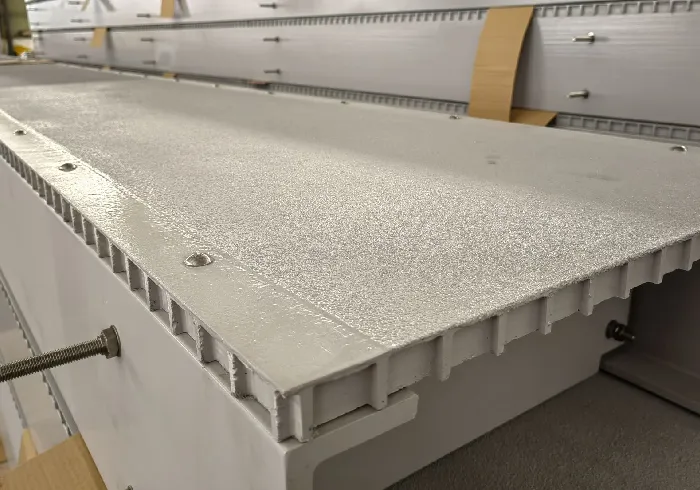loading...
- No. 9, Xingyuan South Street, Dongwaihuan Road, Zaoqiang County, Hengshui, Hebei, China
- admin@zjcomposites.com
- +86 15097380338
- Welcome to visit our website!
Understanding the Benefits and Functionality of Hard Water Softeners for Home Use
Understanding Hard Water and the Role of Water Softeners
Hard water is a term that describes water with a high mineral content, primarily due to the presence of calcium and magnesium ions. While hard water is not inherently harmful to health, it can cause several issues in households and industries alike. The need for effective solutions to mitigate these problems has led to the widespread use of water softeners, which are essential devices for treating hard water.
The phenomenon of hard water occurs when groundwater seeps through deposits of limestone, chalk, or gypsum, often dissolving mineral salts in the process. As a result, the water becomes hard and is characterized by scale buildup, reduced soap efficacy, and various other inconveniences. Homeowners may notice stubborn white deposits on faucets and showerheads, or they may find that their laundry feels stiff and dingy after washing. Additionally, hard water can affect the performance and lifespan of plumbing fixtures and appliances, leading to costly repairs and replacements.
Understanding Hard Water and the Role of Water Softeners
There are various types of water softeners available on the market. The most common is the traditional salt-based water softener, which requires periodic regeneration with salt to maintain its efficacy. In contrast, salt-free water softeners utilize different technologies to alter the properties of the minerals without removing them, thereby reducing scaling but retaining essential minerals in the water.
hard water softener

The benefits of installing a water softener in your home are numerous. First and foremost, soft water leads to increased efficiency in household cleaning tasks. Soaps and detergents work more effectively, meaning less product is needed, which can save money over time. This also contributes to a greener lifestyle by reducing chemical runoff. Additionally, appliances such as dishwashers and washing machines can function better and last longer when operated with softened water, potentially saving homeowners a significant amount on repairs and replacements.
Moreover, using softened water can enhance personal care routines. Many individuals notice improvements in skin and hair texture after switching to soft water, as it can alleviate issues like dryness and irritation. For those with sensitive skin or conditions such as eczema, the difference can be particularly beneficial.
However, it is important to note that while water softeners provide many advantages, they are not without critics. Some argue that the sodium introduced into the water can be a concern for individuals on low-sodium diets. In response, many manufacturers offer alternative products that use potassium instead of sodium for the ion exchange process.
In conclusion, hard water is a common issue that can lead to a variety of complications in daily life. Water softeners offer an effective solution by removing the problematic minerals that contribute to hardness. With benefits ranging from improved cleaning efficiency to enhanced personal care, investing in a water softener can be a smart choice for homeowners facing the challenges of hard water. As technology advances, it is likely that new and improved water treatment solutions will continue to emerge, ensuring that households can enjoy the benefits of both good health and effective water usage.
-
Premium FRP Handrail for All ApplicationsNewsAug.29,2025
-
Low Maintenance FRP Mini Mesh Grating ProductsNewsAug.29,2025
-
Innovative FRP Square Tubes for Modern Industrial SolutionsNewsAug.29,2025
-
FRP Water Storage Tanks Wholesale Solutions for Bulk BuyersNewsAug.29,2025
-
FRP Molded Grating Solutions for Diverse Industrial ApplicationsNewsAug.29,2025
-
Construction Advancements Through FRP Pultruded ProfilesNewsAug.29,2025
-
Why Choose FRP Railings, Guardrails, and Handrail Systems?NewsAug.29,2025
